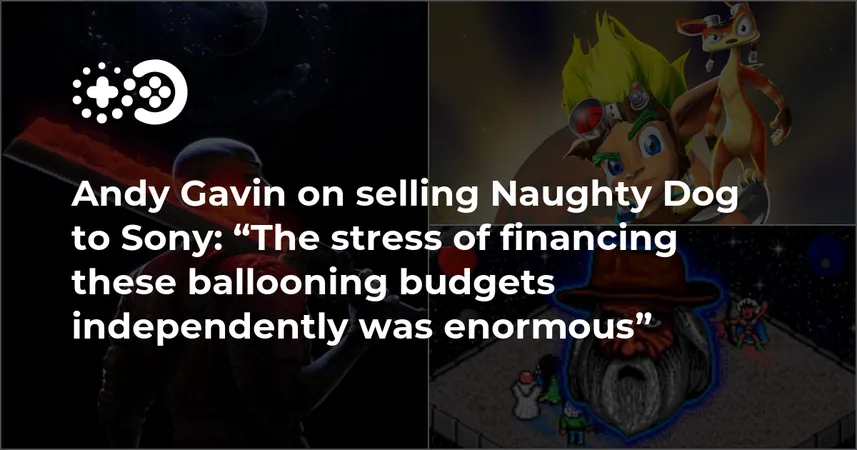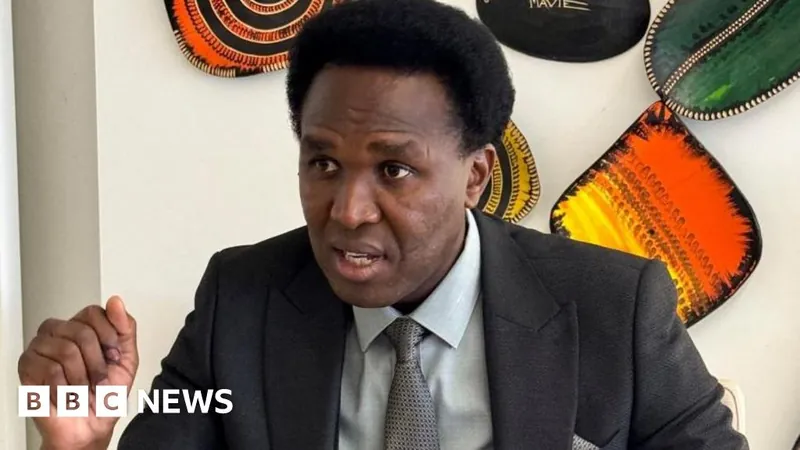
The Untold Story Behind Naughty Dog's Sale to Sony: How Budgets Drove a Gaming Giant's Decision
2024-12-26
Author: Yan
The Untold Story Behind Naughty Dog's Sale to Sony: How Budgets Drove a Gaming Giant's Decision
In a revealing LinkedIn post, Andy Gavin, co-founder of the iconic game developer Naughty Dog, shed light on the pivotal moment when the studio was sold to Sony in 2001. The motivation? An overwhelming surge in video game development budgets that threatened to destabilize the company.
Back in the 1980s, producing games was a relatively affordable endeavor, with costs often dipping below $50,000. However, this figure exploded in the 1990s as titles like the RPG "Rings of Power" ballooned to $100,000. The trend only accelerated from there, with notable Naughty Dog titles incurring significantly higher expenses:
- **Crash Bandicoot (1994-1996):** $1.6 million - **Jak and Daxter: The Precursor Legacy (1999-2001):** $15 million - **Jak 3 (2004):** $45-50 million
Gavin reflected on the financial strain during the year 2000, when Naughty Dog was still self-funding its projects. The pressure of financing such rapidly inflating budgets became untenable, sparking concerns that any misstep could jeopardize the studio's future—this was a systemic issue within the AAA gaming space at the time.
He emphasized that studios striving to produce blockbuster games often lack the financial resources required for success, resulting in an unavoidable dependency on publishers wielding substantial power over them.
Opting to sell to Sony was not merely a financial safeguard for Naughty Dog; Gavin suggested it was also about securing enough resources to maintain their commitment to quality. The sale provided a pathway for the studio to innovate and push the boundaries of game development without the looming anxiety of budgetary constraints.
Fast forward to today, and the landscape has dramatically changed. Gavin noted that the budget for a AAA game today can range from $300 million to an astonishing $500 million. This escalation reflects the lavish investments made by major players like Sony. For instance, "Marvel’s Spider-Man 2" reportedly required a staggering $315 million to bring to life, while Naughty Dog's own "The Last of Us Part II" came in at $220 million. As excitement builds around Naughty Dog's upcoming project, "Intergalactic: The Heretic Prophet," industry insiders are left speculating on just how much Sony will invest in this new IP.
In Gavin's words, partnering with the "right party" like Sony granted Naughty Dog the stability it needed to focus on creating groundbreaking games and fulfilling the creative dreams that had initially motivated the studio. As gaming budgets continue to soar to unprecedented heights, Gavin’s insights serve as a reminder of the pressures and transformations that the industry faces, shaping the future of interactive entertainment.
What’s next for Naughty Dog and the gaming world at large? One thing is for sure: the stakes have never been higher.



 Brasil (PT)
Brasil (PT)
 Canada (EN)
Canada (EN)
 Chile (ES)
Chile (ES)
 España (ES)
España (ES)
 France (FR)
France (FR)
 Hong Kong (EN)
Hong Kong (EN)
 Italia (IT)
Italia (IT)
 日本 (JA)
日本 (JA)
 Magyarország (HU)
Magyarország (HU)
 Norge (NO)
Norge (NO)
 Polska (PL)
Polska (PL)
 Schweiz (DE)
Schweiz (DE)
 Singapore (EN)
Singapore (EN)
 Sverige (SV)
Sverige (SV)
 Suomi (FI)
Suomi (FI)
 Türkiye (TR)
Türkiye (TR)